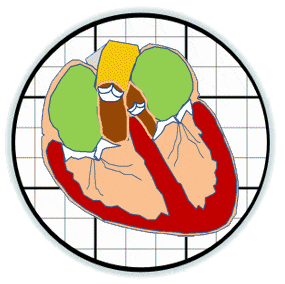Postdoctoral Position in heart valve mechanobiology and tissue engineering
Applications are now being sought for a postdoctoral research fellow to study mechanisms by which mechanical forces coordinate heart valve homeostasis and disease pathogenesis. Our team has developed novel 3D in vitro engineered tissue models of heart valve tissues enabling mechanistic investigation of emergent multi-cellular phenomena. These include novel test beds for applying mechanical forces to complex 3D tissues as well as the ability to measure local anisotropic biomechanical changes during tissue remodeling. We also test these mechanisms in vivo with unique animal model systems and in human tissues. Our goal is to discover and validate novel pharmacological solutions for heart valve diseases. We have developed a rich collaborative network of molecular geneticists, computational biologists, and clinicians from all over the world.
This is an NIH funded position that is further scaffolded by a variety of training grants in the space, as well as access to a unique blend of advanced engineering and life science technologies, intellectual expertise, and professional development resources. The lab is supported by grants from the NIH, NSF, and NY State. Our lab has trained and mentored over a half-dozen tenured and tenure track faculty in the United States and overseas.
Ideal candidates should have a PhD or equivalent degree with experience in molecular biology, computational modeling, and/or 3D culture mechanobiology. Interested candidates should forward a cover letter with a statement of their professional interests, a full CV and a list of three references with complete contact information to:
Jonathan Butcher, PhD (jtb47@cornell.edu, www.butcherlab.com)
Meinig School of Biomedical Engineering
Cornell University
Ithaca, NY
Cornell University is located in the heart of the beautiful Finger Lakes region of upstate New York, known for its wines, craft beers, and unique blend of outdoors and cosmopolitan city lifestyle. Cornell cherishes its diversity and is an equal opportunity employer.
Postdoctoral Position in cardiac developmental mechanobiology and regenerative medicine
Applications are now being sought for a postdoctoral research fellow to study mechanisms by which mechanical forces induce and regulate fetal cardiac morphogenesis, growth and remodeling. The Cardiovascular Developmental Bioengineering Laboratory at Cornell University, led by Prof. Jonathan Butcher, has pioneered the engineering of quantitative live imaging, biomechanical measurement, and mechanobiological stimulation systems to uniquely test rigorous hypotheses of how mechanosensitive switches operate to control morphogenetic decisions locally within the heart and its valves. His group has further developed multi-scale, multi-valent bioinformatics/computational strategies to model and predict mechanisms of morphogenesis that can be directly verified in vitro and in vivo. We incorporate both chick experimental and mouse genetic model systems, as well as utilize engineered emergent in vitro test platforms using primary cells. His lab has been continuously funded by the NIH and AHA for over 15 years, and publishes regularly in high impact journals. Further, his group collaborates with multiple complementary experts both at Cornell and around the world. Fellows will train with and help lead a dynamic transdisciplinary team while preparing themselves for their independent career.
This NIH funded position will pursue one or more of the following broad research goals: 1) Elucidate the in vivo mechanobiological regulatory network governing embryonic heart morphogenesis via localized hemodynamic perturbation in vivo, 2) Determine the interrelationships between growth factor signaling and mechanical stimulation in the normal and abnormal development of cardiac tissues. 3) Integrate the global and local biomechanical and molecular datasets in developing embryonic hearts towards a multi-scale computational model of ventricular and/or outflow tract morphogenesis.
Ideal candidates should have a PhD or equivalent degree with experience in live animal imaging, computational modeling, and/or 3D culture mechanobiology. Experience with cardiovascular and/or developmental biology is a plus. Interested candidates should forward a cover letter with a statement of their professional interests, a full CV, and a list of three references with complete contact information to:
Jonathan Butcher, PhD (jtb47@cornell.edu, www.butcherlab.com)
Meinig School of Biomedical Engineering
Cornell University
Ithaca, NY
Cornell University is located in the heart of the beautiful Finger Lakes region of upstate New York, known for its wines, craft beers, and unique blend of outdoors and cosmopolitan lifestyle. Cornell cherishes its inclusive diversity and is an equal opportunity employer.
